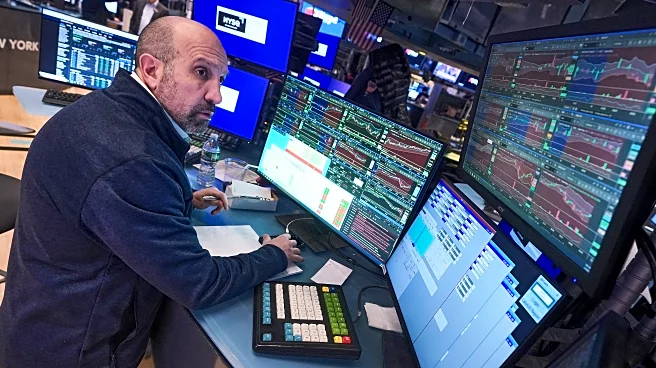What's Happening?
Edtech services that monitor students are under scrutiny for their impact on privacy and education. Companies like Gaggle, GoGuardian, and Bark offer digital monitoring services to help schools manage student safety, particularly in response to mental health crises and school shootings. These services use AI to analyze student messages and search histories, flagging potential risks for bullying or self-harm. However, concerns have been raised about the efficacy and privacy implications of these tools. Critics argue that the surveillance can hinder learning and disproportionately affect marginalized students, such as those with disabilities or from LGBTQ communities.
Why It's Important?
The use of surveillance technologies in schools highlights the tension between ensuring student safety and protecting privacy rights. While these tools aim to prevent harm, they raise significant concerns about data privacy and the potential for bias in AI algorithms. The widespread monitoring of students can lead to increased interactions with law enforcement, exacerbating inequalities and impacting student development. As schools continue to adopt these technologies, it is crucial to establish clear policies that preserve privacy and address bias, ensuring that student rights are protected.
What's Next?
Schools are encouraged to review their contracts with surveillance firms carefully and consider the implications of these technologies on student privacy. There is a growing call for education leaders to listen to student concerns and prioritize preserving their rights when implementing AI tools. Some commentators advocate for banning surveillance technologies that pose risks to students, particularly those from marginalized communities. As the debate continues, schools must weigh the benefits of these tools against their potential harm, ensuring that student safety measures do not compromise privacy and equity.
Beyond the Headlines
The rise of digital surveillance in schools reflects broader societal trends towards increased monitoring and data collection. This shift raises ethical questions about the normalization of surveillance and its impact on student autonomy and freedom of expression. As AI technologies evolve, stakeholders must consider the long-term implications of surveillance on education and society, balancing the need for safety with the protection of individual rights.










